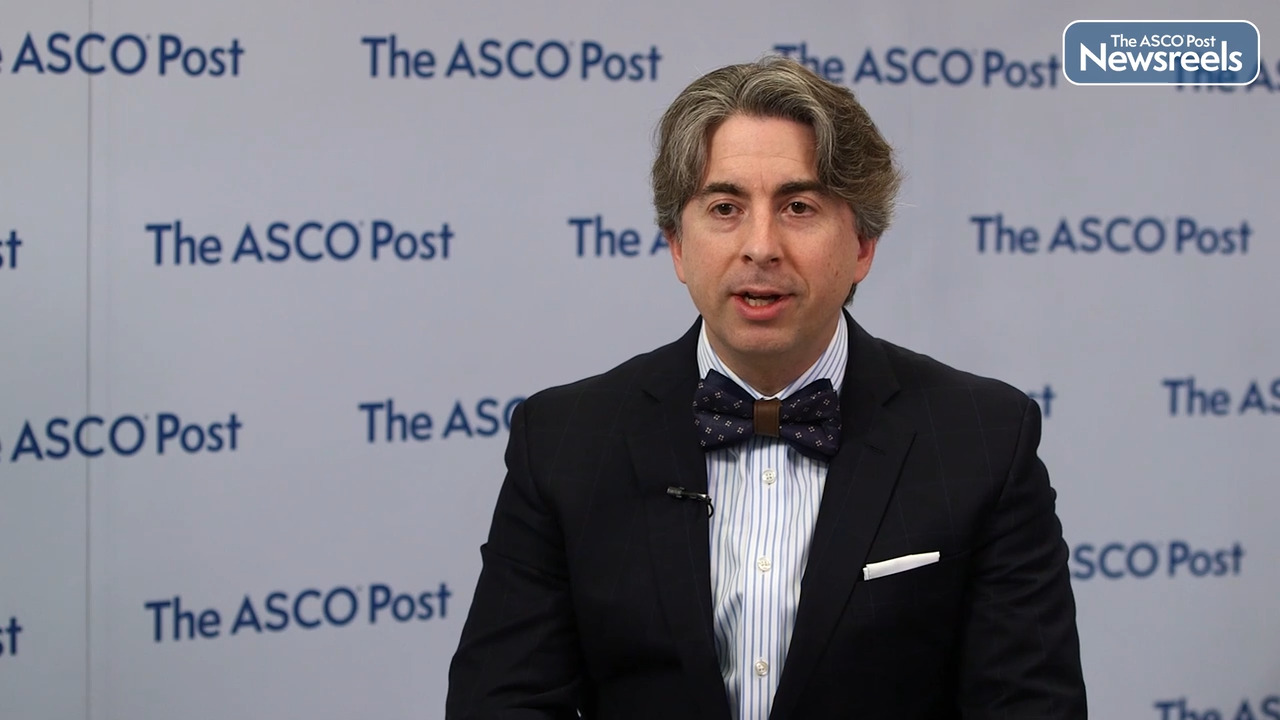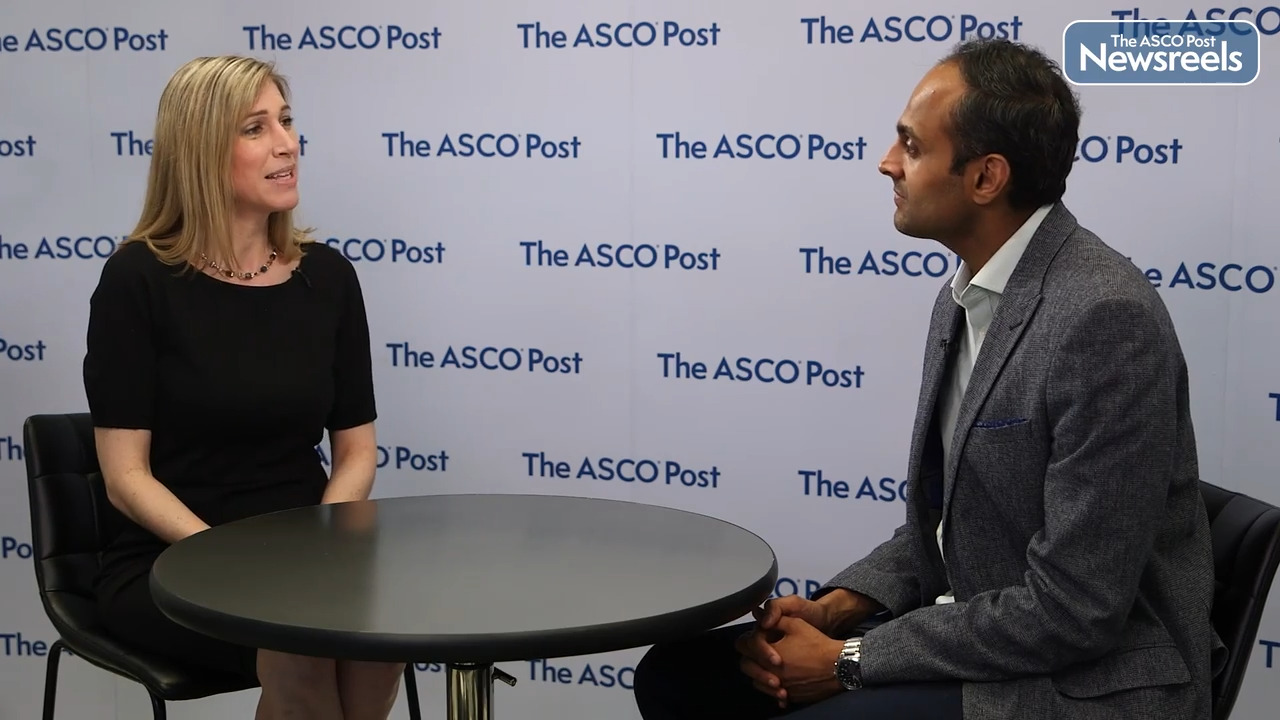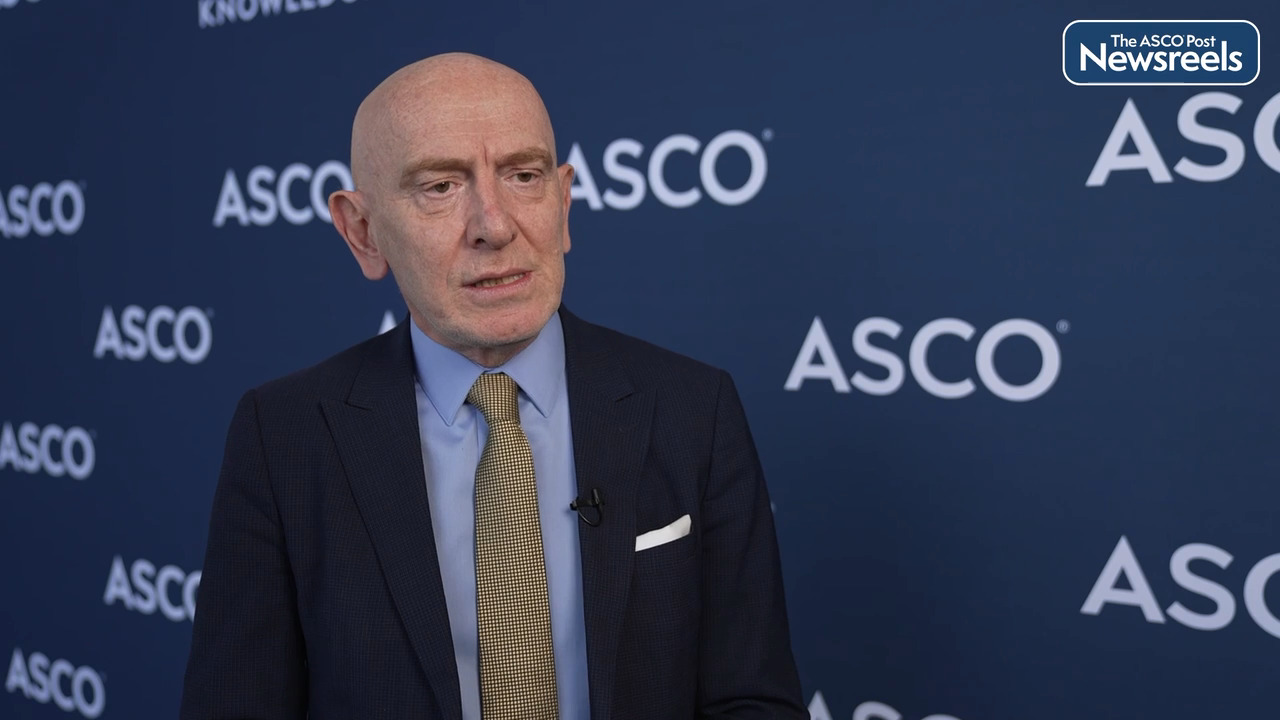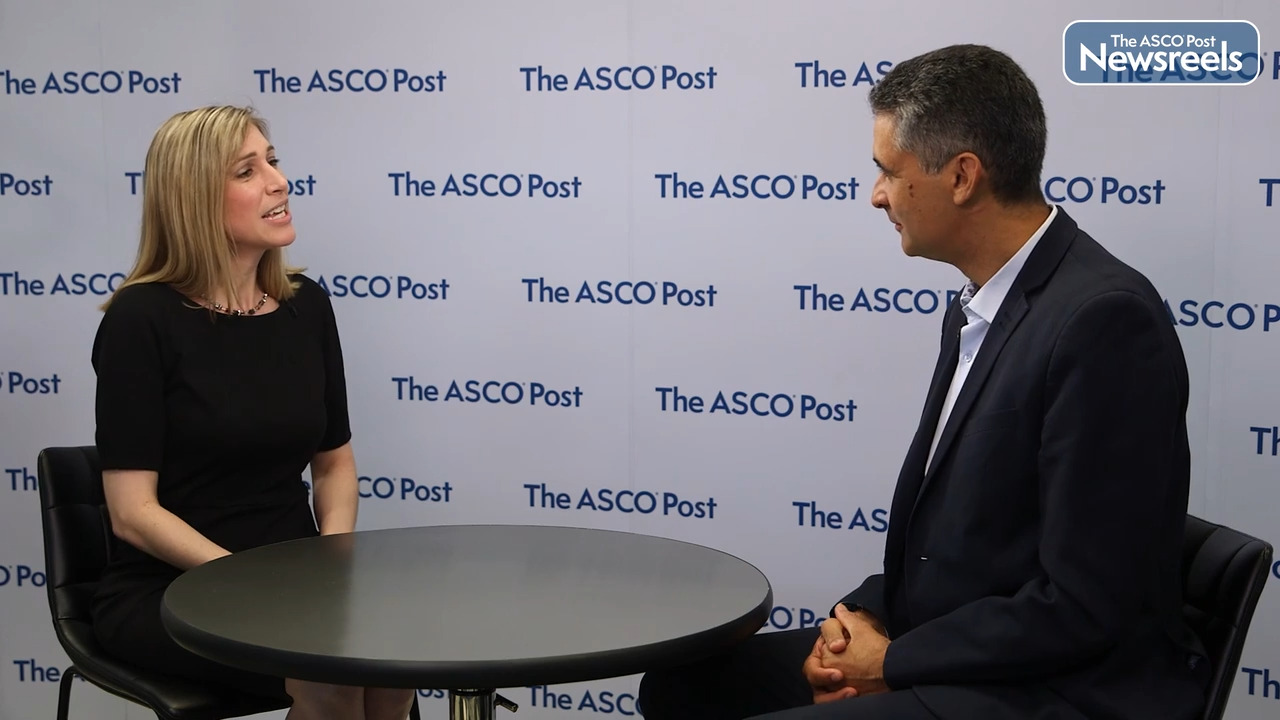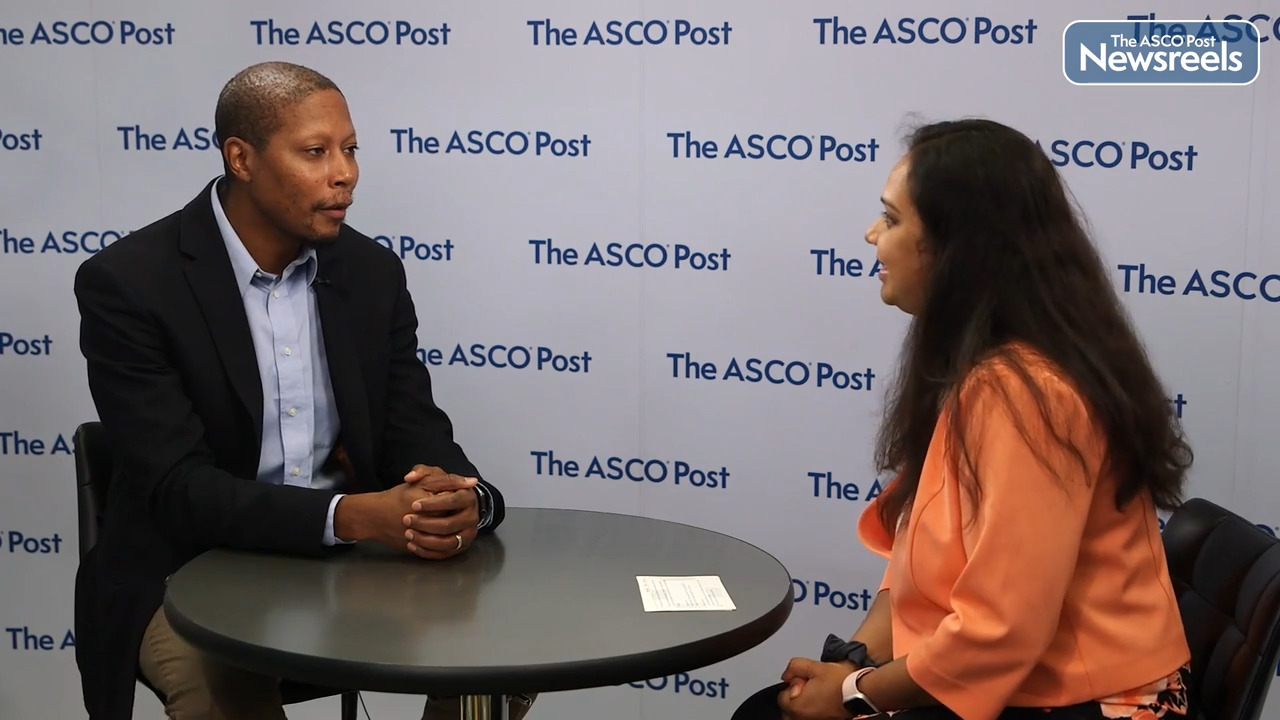Christian Pfister, MD, PhD, on Bladder Cancer: New Overall Survival Data on Perioperative Chemotherapy
2023 ASCO Annual Meeting
Christian Pfister, MD, PhD, of Rouen University Hospital, discusses phase III results from the VESPER trial, which showed that dose-dense methotrexate, vinblastine, doxorubicin, and cisplatin provided a better overall survival rate at 5 years and improved disease-specific survival compared with gemcitabine as perioperative chemotherapy in patients with muscle-invasive bladder cancer (Abstract LBA4507).
Transcript
Disclaimer: This video transcript has not been proofread or edited and may contain errors.
Since 20 year, VESPER is the only randomized [inaudible 00:00:12] trial comparing the efficacy of GC or dose-dense MVAC in perioperative setting in muscle-invasive bladder cancer. On a period of 5 years, we randomized 500 patients in 28 French cancer centers. 56 patient in the neoadjuvant group and the [inaudible 00:00:36] majority, 88% of patient in the neoadjuvant group. The primary endpoint of the VESPER trial was a progression-free survival of 3 years, with [inaudible 00:00:49]. On [inaudible 00:00:52], we present the overall survival at 5 year, and the disease-specific survival of the trial. Dose-dense MVAC allow better overall survival at 5 years than GC in the perioperative setting. In the neoadjuvant group, overall survival was significantly higher, with a 5-year wait of 66 verus 57 persons. Moreover, dose-dense MVAC improved significantly disease-specific survival at 5 years in the perioperative setting. Interestingly, we stratified the 5-year overall survival curve by [inaudible 00:01:36], and dose cisplatin receive.
This representation clearly divides the study population in three group, and confirms the importance of cumulative cisplatin dose. We have the first group pool of all survival with less than four full-dose cisplatin, median of overall survival for GC-arm with four full-dose cisplatin, and higher survival with dose-dense MVAC with four or more full-cisplatin dose. My take-home message are VESPER is worthy of milestone in the history of chemotherapy for muscle-invasive bladder cancer. Dose-dense MVAC provides a better overall survival at 5 years, and significantly improved disease-specific survival over GC in the perioperative setting. Our result confirms the indisputable superiority of dose-dense MVAC over GC as neoadjuvant chemotherapy. Finally, VESPER is practice-changing and showed tumoral impact on clinical cancer research in bladder cancer.
Related Videos
The ASCO Post Staff
Jason J. Luke, MD, of the University of Pittsburgh Medical Center Hillman Cancer Center, discusses adjuvant pembrolizumab, which, in previous results, improved distant metastasis– and recurrence-free survival in patients with resected stage IIB or IIC melanoma vs placebo. After a median follow-up of 39.4 months, adjuvant pembrolizumab continued to show a benefit over placebo, with no new safety signals (Abstract LBA9505).
The ASCO Post Staff
Alicia K. Morgans, MD, MPH, and Praful Ravi, MRCP, MBBChir, both of Dana-Farber Cancer Institute, discuss an individual patient-data analysis of randomized trials from the ICECAP collaborative. A PSA nadir of ≥ 0.1 ng/mL within 6 months after radiotherapy completion was prognostic for prostate cancer–specific, metastasis-free, and overall survival in patients receiving radiotherapy plus androgen-deprivation therapy for localized prostate cancer. These findings may help identify patients for therapy de-escalation trials (Abstract 5002).
The ASCO Post Staff
Muhit Özcan, MD, of Turkey’s Ankara University School of Medicine, discusses phase II findings from the waveLINE-004 study. It showed that the antibody-drug conjugate zilovertamab vedotin had clinically meaningful antitumor activity in patients with relapsed or refractory diffuse large B-cell lymphoma (DLBCL) who experienced disease progression after, or have been ineligible for, autologous stem cell transplantation and/or chimeric antigen receptor T-cell therapy (Abstract 7531).
The ASCO Post Staff
Alicia K. Morgans, MD, MPH, of Dana-Farber Cancer Institute, and Karim Fizazi, MD, of Institut Gustave Roussy, University of Paris-Saclay, discuss findings from the TALAPRO-2 study, which showed that talazoparib plus enzalutamide improved radiographic progression–free survival over standard-of-care enzalutamide as first-line treatment for patients with metastatic castration-resistant prostate cancer and HRR gene alterations. This regimen also delayed the time to deterioration in global health status and quality of life (Abstract 5004).
The ASCO Post Staff
Tycel J. Phillips, MD, and Swetha Kambhampati, MD, both of City of Hope National Medical Center, discuss new findings showing that the real-world effectiveness and safety of brexucabtagene autoleucel were similar to data from the pivotal ZUMA-2 trial in patients with relapsed or refractory mantle cell lymphoma, regardless of prior BTK inhibition, bendamustine, or autologous stem cell transplantation (Abstract 7507).
